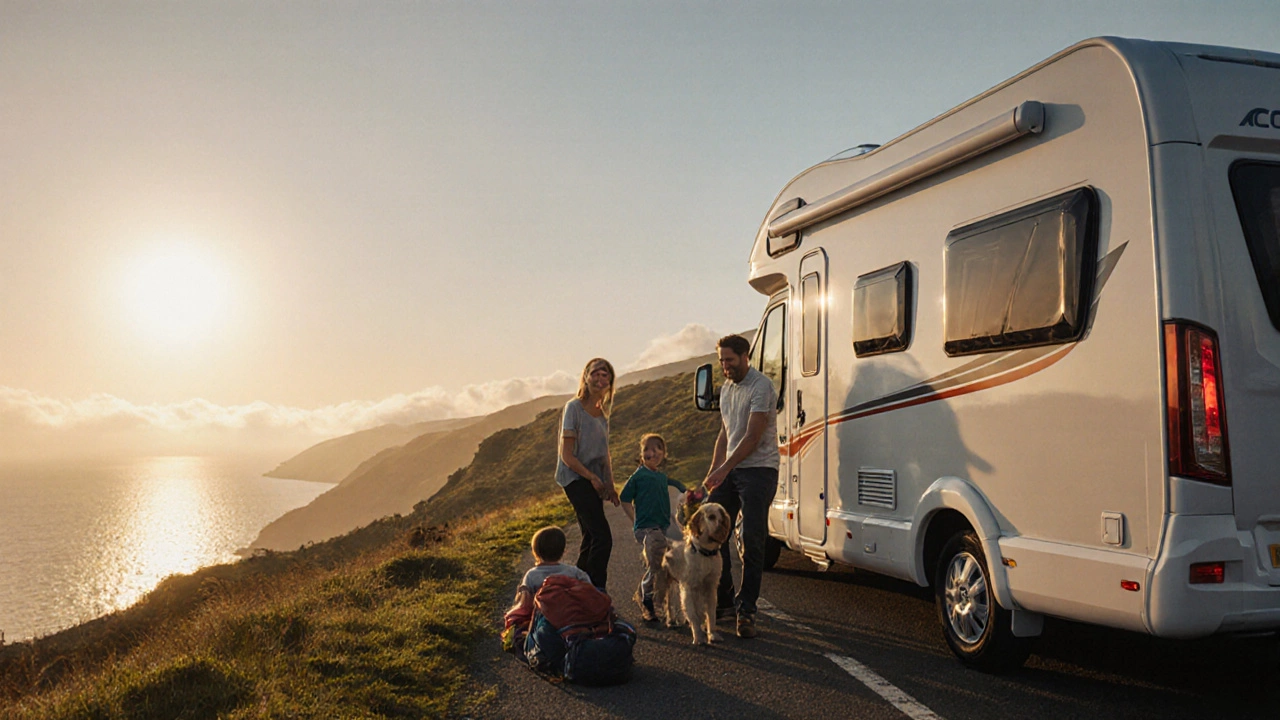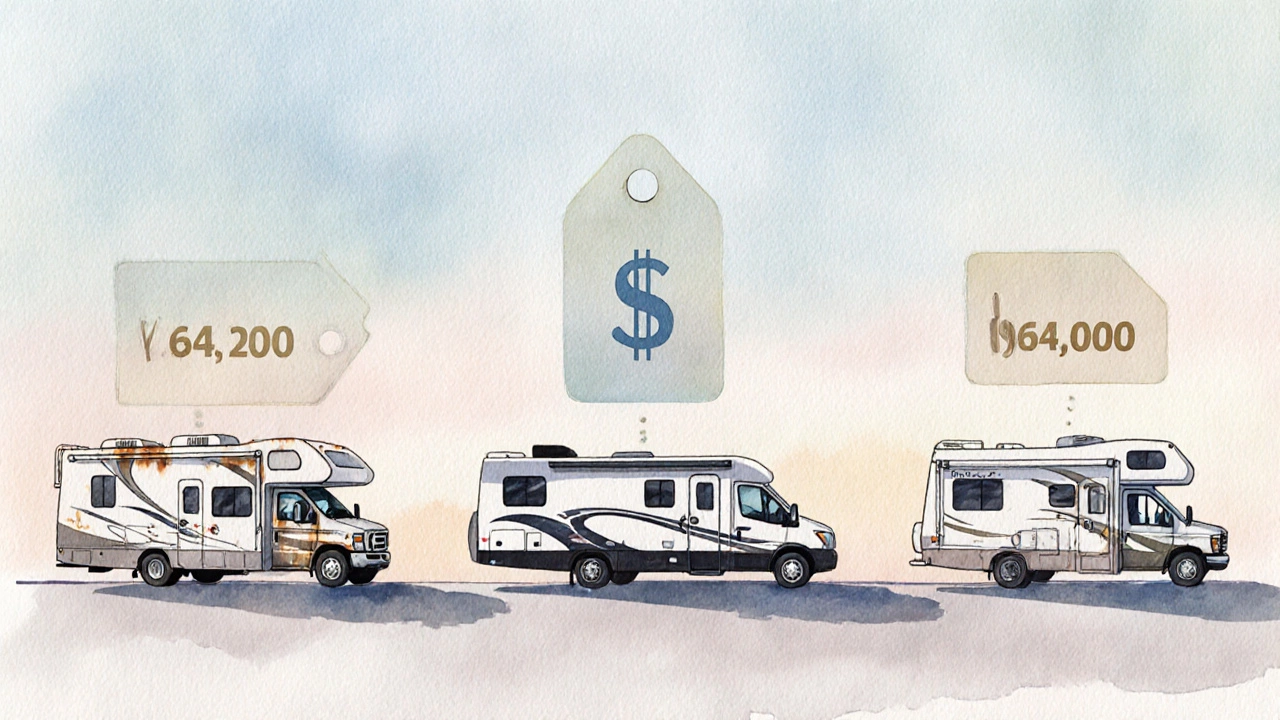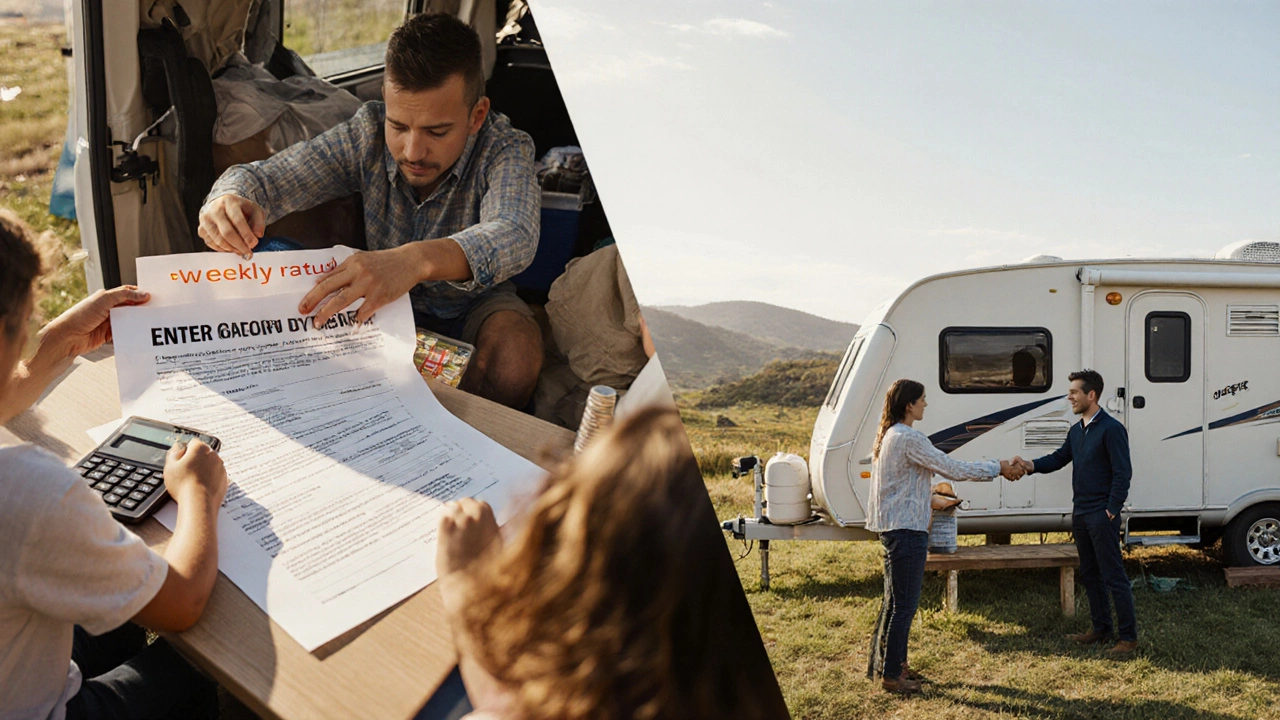Is Buying an RV a Smart Financial Move?
 Oct, 16 2025
Oct, 16 2025
RV Cost Break-Even Calculator
Compare your personal costs to find out if buying an RV makes financial sense for your lifestyle.
When you picture an open road, a kitchen on wheels, and a weekend that never ends, an RV (Recreational Vehicle) is the ultimate freedom‑machine for many families and adventure seekers. But before you trade your savings for a set of wheels, you need to know whether the purchase makes sense for your wallet.
Key Takeaways
- RVs depreciate fast, often losing 20‑30% of value in the first three years.
- Financing adds interest costs that can double the effective price over a typical loan term.
- Insurance, maintenance, and fuel can easily top $5,000 a year for a mid‑size model.
- Renting can be cheaper if you travel less than 12-15 weeks a year.
- Calculate a break‑even point based on your expected mileage, usage, and resale plans before signing a purchase agreement.
What Exactly Is an RV?
An RV is a motorized vehicle that combines living quarters with transportation. The market splits into several families:
- Motorhome - fully built on a truck or bus chassis.
- Campervan - smaller, often based on a van platform.
- Travel Trailer - towed by a separate vehicle.
Each style has a distinct price range, but the financial principles stay the same.
Breaking Down the Big‑Ticket Items
When you buy an RV, the headline price is just the tip of the iceberg. Below is a quick audit of the major cost buckets you’ll face each year.
- Purchase price - New models range from $40,000 for a basic campervan to $200,000+ for a luxury motorhome.
- Financing interest on a loan or lease - Typical APR sits between 5% and 9% for a 5‑year loan.
- Insurance covers liability, collision, and comprehensive risks - $1,200-$2,500 annually, depending on coverage and location.
- Maintenance routine service, tire replacement, and unexpected repairs - $1,500-$3,000 a year on average.
- Fuel consumption varies by size; 10-15 mpg for larger motorhomes - $2,500-$4,000 per year for typical mileage.
- Depreciation the loss of market value over time - up to 30% loss in the first three years.
- Campground fees overnight site rates, usually $30-$60 per night - adds up quickly on longer trips.
Depreciation: The Silent Money‑Eater
Unlike a house, an RV is a luxury good that drops in value the moment it rolls off the lot. Data from the National RV Dealers Association (NRDA) shows an average depreciation curve of roughly 20% in year one, 12% in year two, and another 8% in year three. By the fifth year, you’re looking at about a 50% loss of original price.
If you plan to keep the vehicle for a decade, the annualized depreciation shrinks to around 5% per year, which is more manageable. But the faster you want to recoup the purchase price, the less realistic it becomes.

Financing Costs: How Interest Swells the Bill
Most buyers don’t pay cash, so financing turns the sticker price into a long‑term expense. Let’s run a quick example:
- Purchase price: $80,000
- Down payment: $10,000 (12.5%)
- Financed amount: $70,000
- APR: 6.5%
- Term: 5years
Monthly payment works out to about $1,375, which totals $82,500 over five years - $2,500 more than the financed amount. Add in loan‑origination fees (often $500-$1,000) and you’ve paid roughly $3,500 extra just for credit.
Insurance and Maintenance: The Ongoing Drains
Insurance premiums rise with vehicle value, driver age, and claim history. A family of four with a 30‑foot motorhome can expect $1,800 in liability coverage plus $400 in comprehensive coverage, totaling $2,200 per year.
Maintenance is less predictable. Routine oil changes, brake service, and RV‑specific checks (like sewer hose replacements) run $1,200 annually. Factor in a 10% contingency for unexpected repairs, and you’re looking at $1,500-$2,000 a year.
Fuel: The Day‑to‑Day Variable
Fuel costs depend heavily on travel distance and vehicle size. A 12,000‑mile year at 12mpg with a $3.60 per gallon price costs about $3,600. If you keep a smaller campervan at 18mpg, the same mileage drops to $2,400.
Renting vs. Buying: The Cost‑Comparison Table
| Cost Component | Buy (5‑year ownership) | Rent (per week) |
|---|---|---|
| Purchase price (amortized) | $12,000 | - |
| Financing interest | $3,500 | - |
| Insurance | $2,200 | $150 |
| Maintenance & repairs | $1,800 | $100 |
| Fuel (12,000mi) | $3,600 | $200 |
| Campground fees (30 nights) | $1,500 | $1,200 |
| Total annual cost | $24,600 | $1,800 |
Renting looks dramatically cheaper if you only hit the road a handful of weeks each year. However, once you exceed roughly 12-15 weeks of use, the scales tip toward ownership, especially if you can spread depreciation over a longer period.

How to Calculate Your Break‑Even Point
Use this simple worksheet:
- Estimate total weeks you’ll use the RV per year.
- Multiply weekly rental cost (including insurance) by those weeks.
- Add fuel, campground, and any extra fees.
- Calculate annualized purchase cost: (Purchase price÷ownership years) + interest + insurance + maintenance + fuel + campsite.
- Compare the two totals. If ownership cost is lower, you’ve passed the break‑even threshold.
Tips to Keep the Financial Burden Light
- Buy used. A three‑year‑old motorhome can be 30% cheaper while still under warranty.
- Shop financing. Credit unions often beat dealer rates by 1-2%.
- Bundle insurance. Many providers give discounts if you combine auto and RV coverage.
- Plan trips efficiently. Combine nearby campsites to reduce fuel mileage.
- Maintain proactively. Regular oil changes and tire rotations prevent costly breakdowns.
Bottom Line: When Does Buying Make Sense?
If you’re logging more than 12 weeks on the road annually, have a stable income, and can afford a sizable upfront payment, buying can be financially smart. Otherwise, renting offers flexibility without the hidden cost of depreciation.
Frequently Asked Questions
How long does an RV typically last before it needs major replacement?
A well‑maintained RV can serve 10-15 years before major components like the engine, transmission, or chassis require replacement. Regular service extends that lifespan.
Can I write off RV expenses on my taxes?
If you use the RV for business or as a home office, a portion of the depreciation, insurance, and fuel may be deductible. Consult a tax professional for exact eligibility.
Is financing an RV any different from a car loan?
It’s similar, but lenders often require larger down payments and may charge higher APRs because RVs are considered luxury assets.
What’s the best time of year to buy an RV at a discount?
Dealers typically clear inventory in the fall (September‑October) before the holiday season, making it the prime buying window.
Should I consider a travel trailer instead of a motorhome?
A travel trailer is cheaper up‑front and can be towed by a regular SUV, but you’ll need a capable tow vehicle, which adds another cost factor.